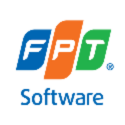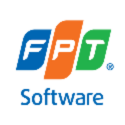Revolutionizing Healthcare: The Impact of AI in Personalized Medicine and BeyondRevolutionizing Healthcare: The Impact of AI in Personalized Medicine and Beyond
The global healthcare AI market is projected to reach $188 billion by 2030, amid a looming shortage of healthcare professionals. AI's role, termed "augmented intelligence" by the American Medical Association, is enhancing healthcare through improved diagnostics, personalized medicine, patient engagement, and breaking down data silos, revolutionizing patient care and treatment decisions.

The World Economic Forum estimates the global healthcare AI market will be worth $188 billion in 2030. That same year, it's projected that we will be short nearly 10 million physicians, nurses, and midwives, as our aging population will need more healthcare.
Artificial intelligence (AI) is already having a powerful impact on healthcare and medicine, and that is certain to increase. In reference to AI in healthcare the American Medical Association (AMA) uses the phrase “augmented intelligence,” describing an artificial intelligence that “focuses on AI’s assistive role, emphasizing that its design enhances human intelligence rather than replaces it.”
Generative AI is turning disparate data sources into valuable healthcare resources. AI is also powering data-driven insights and process improvements that advance healthcare through drug discovery and other biomedical research, genomics, personal medicine, medical imaging, medical devices, improved patient care, and the creation of new, modern clinics.
Improving Diagnostic Accuracy and Speed
AI algorithms and deep learning are showing promising potential in several healthcare areas. Government Accounting Office research showed several machine learning (ML) technologies can detect diseases earlier and analyze medical data more consistently.
FPT Software, for example, used AI’s predictive analytics to detect pneumothorax and kidney tumors. These winning solutions have been recognized at two healthcare technology competitions: the Pneumothorax Challenge and KiTS19 Grand-challenge.
Other research found that AI can trigger radiology imaging follow-up to prevent delayed and missed care. Finding disease sooner, better addressing the challenge of diagnostic errors, and reducing delays can mean better patient outcomes and lower healthcare costs.
Personalized Medicine and Treatment Plans & Predictive Analytics for Preventative Care
When AI helps a doctor to predict a patient’s risk of developing certain conditions, healthcare changes from a reactive model to a proactive one. Identifying at-risk patients earlier with predictive analytics means it’s possible to take preventative measures before conditions worsen or, sometimes, before they even appear.
AI-powered apps for augmented intelligence in medical imaging can sometimes “see” patterns not evident to a human radiologist, leading to earlier detection. It can also help create personalized treatment plans that make treatment more effective. Specific AI models using image segmentation can detect lung injuries and diseases such as pneumothorax, pneumonia, cystic fibrosis, and cancer.
Using AI and ML in precision medicine, which looks at a patient’s genetics, environment, and lifestyle to select a personalized medicine approach, is a paradigm shift in healthcare.
Developing new medical treatments is a lengthy and costly process. Discovering that a treatment doesn’t work at the end of the development process means bearing considerable expense and loss of time. AI can help more efficiently develop medical treatments that are better targeted and thus more likely to succeed.
Enhancing Patient Engagement and Monitoring
AI-powered applications and tools can make patients engaged partners in their own care by reminding them to take medication and make appointments. Individuals with diabetes can wear a blood glucose monitor that provides insulin dosing recommendations, and patients needing to monitor their blood pressure can wear a device for that. Smartwatches gather some health data, and there's even smart clothing, which has embedded sensors and gives patients a less conspicuous and often more comfortable way to manage a chronic condition.
Wearable devices and mobile apps can allow healthcare providers to continuously monitor a patient’s health metrics remotely, in real-time, improving patient engagement and compliance and allowing for timely interventions as needed. AI-based recognition technology, for instance, can automatically log health data.
AI algorithms look at data gathered by wearable devices, analyze it for patterns and correlations that may indicate a health risk, and send this information to the healthcare provider. This can substantially improve a patient’s out-of-hospital monitoring and overall experience.
Leveraging data analytics, a well-established American multinational technological manufacturer on the Fortune 500 list has partnered with FPT Software to develop a mobile app that enables immunocompromised patients to self-administer their infusions at home.
Breaking Down Data Silos and Improving Interoperability
One problem in the healthcare industry is that data is often siloed, or fragmented across different systems, locations, and providers. AI can make a huge difference in this area, building bridges across data silos to enable more efficient and data-driven decision-making. This comes from allowing interoperability, which means that two or more systems can exchange data accurately because they have a standard format and meaning. Using AI technologies for transcription, auto-generated text-based medical information can be put into EMRs, helping to reduce examination time and preserving data in an interoperable fashion for future reference.
Integrating and analyzing data from diverse sources means gaining a much more holistic view of a patient's overall health.
AI is reshaping how we approach patient care and treatment decisions, and new AI applications continue to challenge what was once thought possible in healthcare. With AI, the industry is leveraging ever-increasing amounts of healthcare data, furthering research, conducting remote and real-time monitoring, and seeing many other advancements connected to positive patient outcomes.
Augmented intelligence, which exists alongside humans and supports professional interaction and decision-making, will continue transforming healthcare, personalized medicine, and beyond.
FPT
With over 15 years of partnering with leading healthcare providers, global technology and IT services provider FPT Software remains at the forefront of addressing industry needs. By combining cutting-edge technology and extensive expertise, FPT Software delivers customized solutions that optimize operations and enhance patient care experiences. For more information, please visit https://fptsoftware.com/
About the Author
You May Also Like







